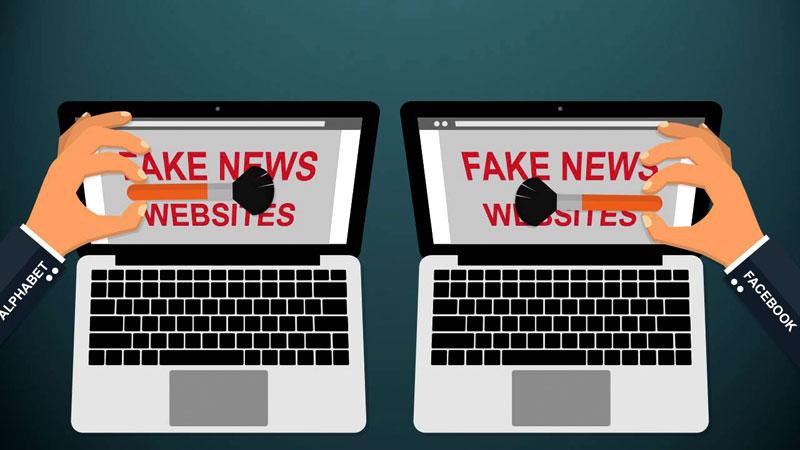
The manifest and catastrophic editorial failures of the mainstream media’s coverage of the US presidential election not only showed how compromised and undisciplined today’s journalism has become, but how technology has lobotomised traditional journalists.
The late journalist Gwen Ifill lamented: “We need to distinguish between media and journalism.”
In the prehistoric, pre-internet world, all of the value in journalism and information services accrued to the publisher. Publishers made all the money and journalists were the cogs in the machine. In the post-internet world that value has been stolen from the publishers by the aggregators through aggressive technological developments.
AOL, Yahoo, Google and Facebook have disrupted the entire news publishing chain, and robbed the news outlets of ad revenues. But now they’ve found that their media platforms have spawned their own monster: fake news.
Unless they invent some sort of artificial intelligence that can discern fake from real news they have no choice but to hire human editors and become, to their shock and dismay, a laborious and proper news organisation.
Our 21st century digital overlords have created a problem that threatens the mountain of advertising revenues. Ultimately, Mark Zuckerberg’s disingenuous dream of linking up everyone on Facebook is not about doing social good, but ad riches.
Now that’s being threatened by their deterioration if fake news successfully populates the platform. Evolving technology spawns its own death. And now there is talk about a “China perspective” to right the perceived shortcomings of the “Western perspective”. No matter that no one knows what the western perspective on China looks like or that it is not monolithic. Or that no-one can define what constitutes the Chinese perspective.
I have yet to see a comparative study contrasting features written in the China versus western media perspective. Therein lies the very problem with journalism that descends into media: just because you possess the digital capability to engage with everyone and anyone, everywhere, at all times, doesn’t mean you have a real story to tell or truth to reveal.
All media organisations create spin and gravity like all large bodies. Individual journalists, editors are all susceptible to human bias. There is your truth, my truth and the truth. All are both independent and intertwined.
Ultimately, journalism isn’t as much about perspective than it is about reporting things people don’t like to hear. That’s not an absolute right because people who don’t like what you write can sue you. But, anything else should be suspiciously regarded as public relations or propaganda.
Journalists let technology overwhelm them and merrily joined the unrestricted free fire zone of social media. And now the technologists are claiming journalism as their own realm.
But servers don’t write stories. People do. China has always had the opportunity to tell its perspective, its side of any story. More technology and new, social media journalism does not help this cause. It only hastens the descent into propaganda and “weaponises” journalism.
You cannot be neutral or balanced about the truth otherwise it becomes banal and meaningless in the face of technology. Sadly, the Oxford English Dictionary just announced its word of 2016: “post truth”. Creating a false moral or factual equivalence eventually makes entire organisations an accomplice to horrible wrongdoings. A descent into the style of Kampala Argus during the Idi Amin dictatorship is never far away.
Joseph Goebbels said in speech on the ‘Tasks of the Reich Ministry for Popular Enlightenment and Propaganda (March, 1933): “It is not enough for people to be more or less reconciled to our regime, to be persuaded to adopt a neutral attitude towards us; rather, we want to work people until they have capitulated to us, until they grasp ideologically that what is happening in Germany today not only must be accepted, but also can be accepted.”
The ability to reduce journalism to digits, mere wallpaper in never ending waves of spin and information doesn’t make it meaningful or beneficial. Social media allows anyone – especially marketers, the unique opportunity to find and superserve their exact group of customers. But, social media also feeds the human tendency to congregate with one’s own kind. You hear the truth that you want to believe and act accordingly. Hate and untruths appear alongside good intentions and facts.
It’s not hell. But you can begin to see it from here.
-(South China Morning Post)
